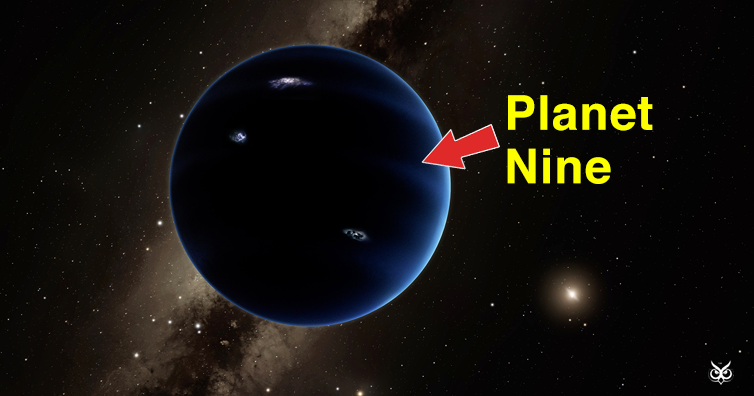We all know that there are 8 planets in our solar system, right? Mercury, Venus, Earth, Mars, Jupiter, Saturn, Uranus, and Neptune. Is this the case though? It might not be, scientists say.
Scientists now believe there is a 9th planet in our solar system that is roughly 10 times larger than earth. They haven’t been able to locate it yet but they know it’s there because of its gravitational effects on other objects.
What they have discovered is that numerous features of the Kuiper Belt, beyond the orbit of Neptune, can be understood if the solar system possesses an additional 9th planet. This code-named ‘Planet Nine’ is believed to reside well beyond the orbits of the known planets. Here’s a simple explanation so you can understand how this works: (the article continues after the ad)
When we look at the outer solar system we realise that most of the very distant objects – objects that are way beyond Neptune and Pluto, they all go around the sun and they are all sort of pointing off in all different directions. But the most distant objects, all swing out in all direction in a very strange way that shouldn’t happen. By looking at this, scientists realised that the only way to make them swing in one direction is in the case in which there is a massive planet, also very distant in our solar system, that keeps them in place while moving around the sun.
This planet itself is likely more massive than the Earth, probably a little less massive than Neptune. Its orbit, unlike the orbits of the known planets, is not nearly circular. Instead, it is exceptionally wide, 20 times bigger than the orbit of Neptune. To get that into perspective, let’s look at the orbital periods of different planets: the orbital period of the Earth is, of course, 1 year. The orbital period of Juniper is about 10 years. The orbital period of this 9th planet is… 20,000 years!
Either this is caused by a 9th planet or not, these discoveries are definitely a proof that there is still a lot to learn for our solar system.
If you like what you read, then you will definitely love this one: This Is Why Pluto Is Still A Planet In New Mexico


Source: Caltech
Photo: Wired
Widget not in any sidebars





